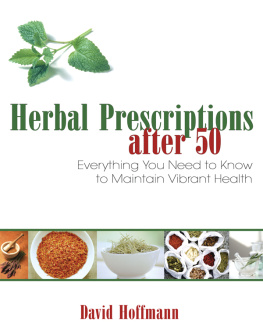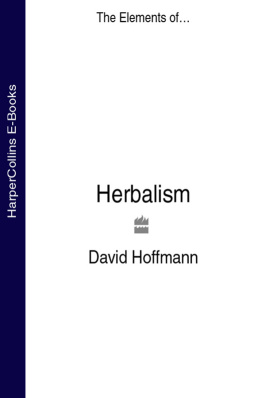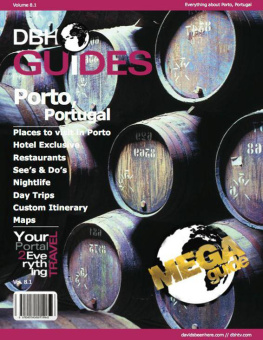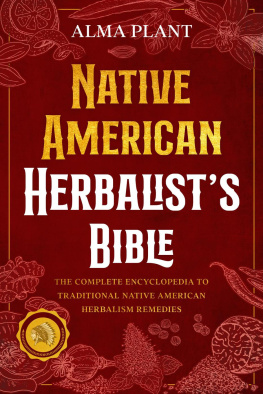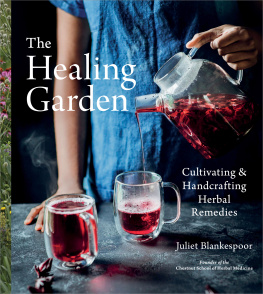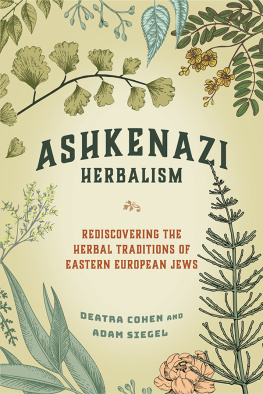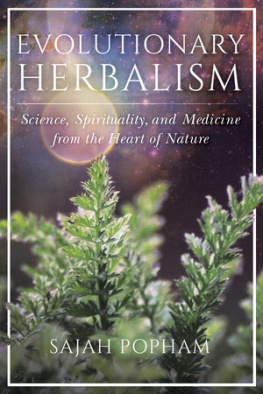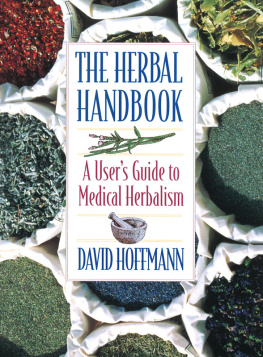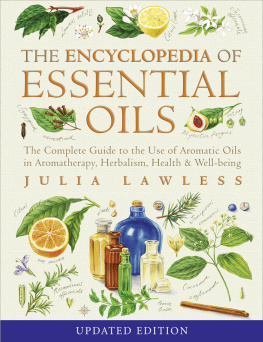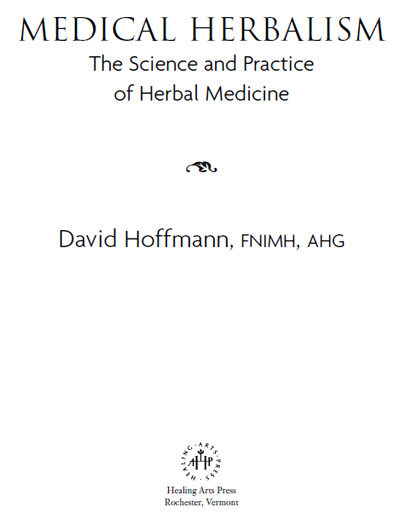
DEDICATION
For Lois Stopple,
What can I say, after 600 odd pages (odd pages indeed), Im tongue tied! You have healed me heart and soul, with the celebration of life and joy that you are. This book may have been written by me, but it was midwifed by you.
Sweet blossom come on under the willow
We can have high times if youll abide
We can discover the wonders of nature
Rolling in the rushes down by the riverside
Shes got everything delightful
Shes got everything I need
A breeze in the pines in the summer night moonlight
Crazy in the sunlight, yes, indeed
THE GRATEFUL DEAD (WHO ELSE...)

ACKNOWLEDGMENTS
My deepest appreciation to Cheri Quincy, DO, for the continuing encouragement and support. Thank you for your confidence in me, even when I couldnt even spell the word!
It is with love and gratitude that I acknowledge my friends and colleagues in the North American community of herbalists for making this escapee from Thatchers Britain so welcome. The ideas in this book have been gestating over the years in discussions with many, many herbalists. The U.S. herb world is blessed with an atmosphere of openness and mutual support that is unique and deeply nurturing. We can thank Rosemary Gladstar for so very much...
There is so much I could say to each of you, so Im copping out and simply naming names. No special order, I love you all: Cascade Anderson-Geller, Paul Bergner, Jane Bothwell, Mark Blumenthal, Don Brown, Ryan Drum, Rosemary Gladstar, Mindy Green, Christopher Hobbs, Tori Hudson, Feather Jones, Gail Julian, Kathi Keville, Tierona Low Dog, David LaLucerne, Rob McCaleb (and everyone at the Herb Research Foundation), Anne McIntyre, Terence McKenna, Bill Mitchel, Pam Montgomery, Rob Montgomery, Michael Moore, 7 Song, Ric Scalzo, Ed Smith, Sara Smith, Paul Stamets, Jill Stansbury, Autumn Summers, Jonathan Treasure, Gail Ulhrich, Roy Upton, Marty Wall, David Winston, Linda Wolf, Tom Wolf, Matthew Wood, Dusty Yeo.
This book is much better than it deserves to be because of the superlative guidance of herbalist/editor extroadinaire Evelyn Leigh. Thank you for being so knowledgeable, insightful, literate, and understanding of this aging deadhead. You made the process pleasant, rewarding (or is that rewording?), and even entertaining.
To Jeanie Levitan, the first editor to give me her toothbrush! All authors should hope to be blessed with guidance from someone with your erudition and warmth. To Jamaica Burns for editorial help above and beyond the call of duty. Sorry about the obscure Chinese citations.
I want to thank the many groups of students I have had the honor of working with over the years. You all know who you are. In case youve forgotten, you went to one (or more!) of the following institutions: the California School of Herbal Studies, the Rocky Mountain Center of Botanical Studies, Bastyr University, National College of Naturopathic Medicine, California Institute of Integral Studies, and the National College of Phytotherapy.
Sonoma County reference librarians have been a great help during the writing of this book. What would we do without libraries?
To Sasha Shulgin, Grant Morrison, Hakim Bey, Jerry Garcia, and Ozric Tentacles for the help with sanity maintenance (and furtherance...).
INTRODUCTION

T his is an exciting and very challenging time to be involved in herbal medicine. There is a growing openness to the insights of clinical herbalism from practitioners of other health care modalities, and a plethora of peer-reviewed work on herbs being published by the research community. Many new insights have been put forth, and many traditional ideas are being reassessed and either rejected or embraced anew.
Above all, this is a time of change for Western medicine, both holistic and orthodox. While herbs have a unique and valuable contribution to make, no clear context has yet been defined for Western holistic medicine. In such a rapidly evolving clinical and research milieu, a book of this sort can at best serve as a building block, a step on the road toward a more cohesive vision for the future of Western holistic healing.
With this book I have endeavored to lay a foundation for the skilled use of herbal medicine within a holistic practice by bringing together the modern scientific movement with traditional herbal practice. The book is intended for practitioners and students of medical herbalism, as well as practitioners of other modalities who are interested in the principles and practice of Western herbal medicine.
A cursory look at the contents reveals two distinct sections of the book.
Part 1 surveys the scientific underpinnings of medical herbalism, the chemistry and pharmacology that may help clarify the mechanisms of herbal activity and clinical efficacy. While this information may be unfamiliar and challenging for many herbalists, I feel it is important for traditional practitioners to have at least a rudimentary grasp of this subject as we move into the 21st century.
Part 2 deals with the practical therapeutics of the major body systems and the pathologies that affect them. It is based on my own 25 years of clinical experience, the experience and knowledge accrued by the Eclectic and Physiomedical physicians of the United States, and the practices developed by the National Institute of Medical Herbalists in the United Kingdom.
Despite the seeming dichotomy of these two major sections of the book, I have attempted throughout to marry biomedical theory with the clinical experience of the medical herbalist. As a clinician who began his own herbal practice in 1978, I have seen that Western herbal medicine is based upon a body of knowledge and experience that has as much clinical value as any other field of medicine. Thus the guidelines for protocol development given throughout the book are based firmly on this bedrock of Western herbalism. I have not rejected the clinical approaches of medical herbalism in favor of peer-reviewed research. Even acknowledging the wealth of research occurring, there is not yet enough clinically relevant material to justify changing tried-and-true approaches, an issue that is explored throughout the book.
The focus of the medicinal plant research community, however, is rarely on the protocols used in herbal medicine, but instead on the plants themselves as sources of novel (and thus patentable) chemical structures. A disquieting trend in North American herbalism is the tendency to be influenced by the marketplace and herbal fashion. I have made a point of avoiding such hype in the treatment section of the book. The following statement, made by the 19th-century Eclectic physician John King in writing about Grindelia squarrosa, is as relevant today as it was 100 years ago:
The fact is, that many physicians have a great proneness to run after new remedies, especially when introduced under some pretentious name, and to place a marvelous credulity in the statements of interested parties, who are incapable of determining accurate conclusions as to the value of a remedy.
Herbalism is a fundamentally conservative activity, although I must say it is the only aspect of my life where any trace of conservative tendencies will be found!
OVERVIEW OF THE BOOK
PART 1
Chapter 1
Places Western herbalism in a philosophical, therapeutic, ecological, and multicultural context. This chapter introduces the relationship between science and herbal medicine, looking at the scientific method and the language of research. A discussion of pharmacognosy is followed by a review of large-scale screening programs to assess the therapeutic potential of the worlds flora. The importance of the conservation of medicinal plants and the work of organizations such as United Plant Savers is discussed.
Next page


